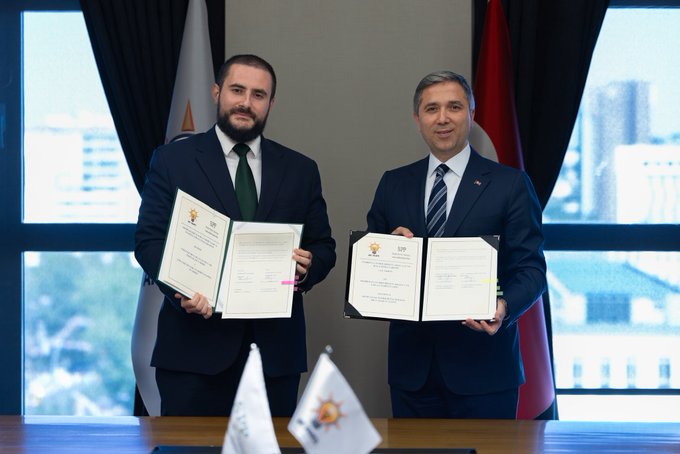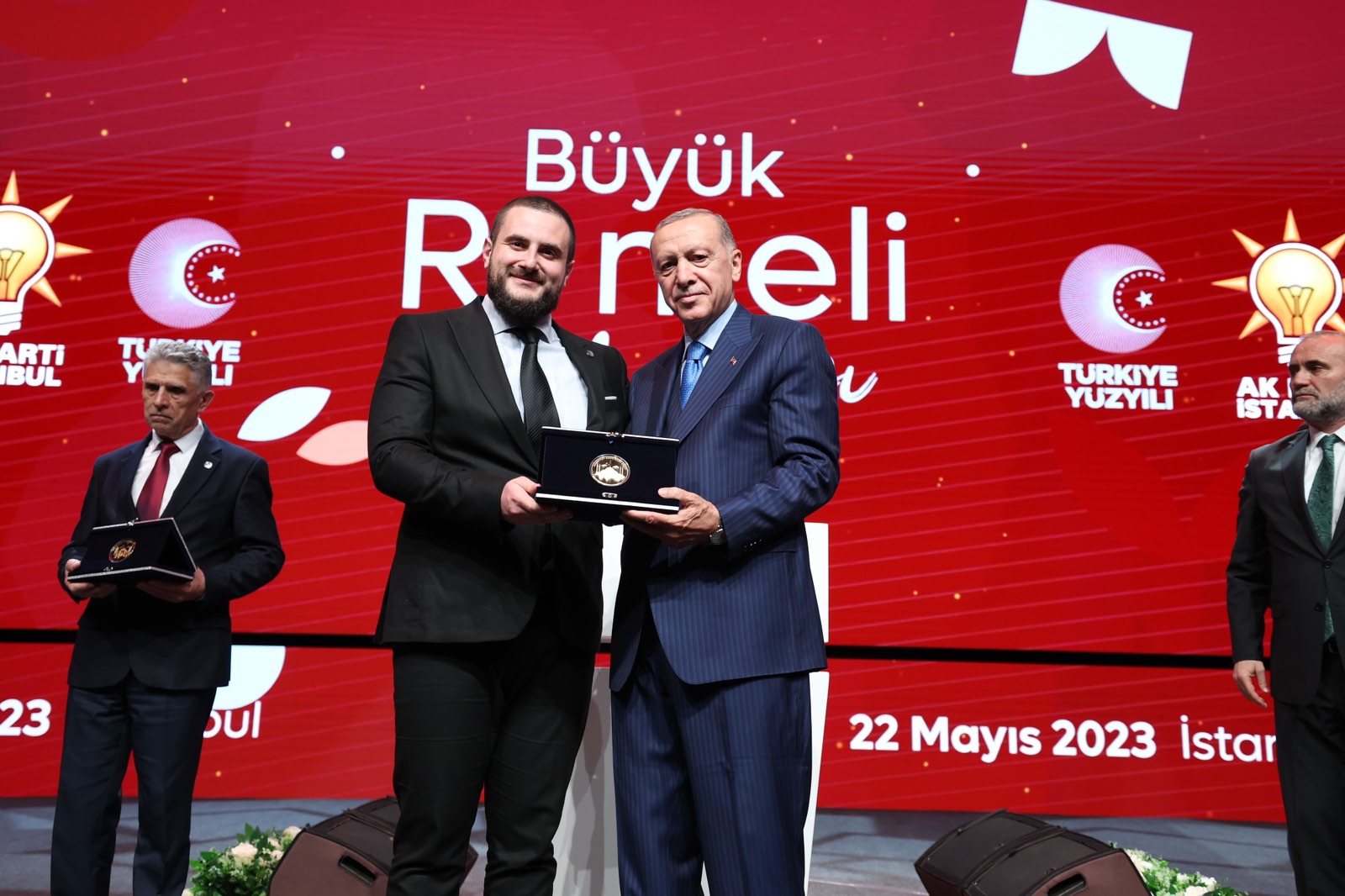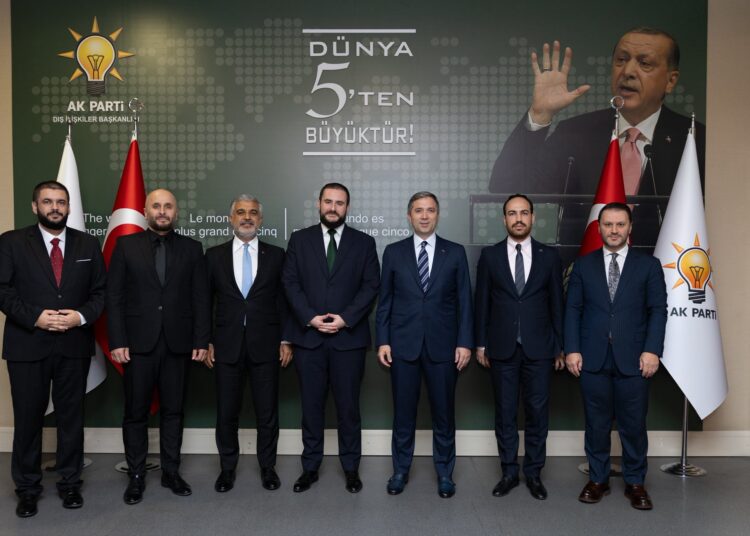Levent Kenez/Stockholm
Turkey’s ruling Justice and Development Party (AKP) has signed a memorandum of understanding with Serbia’s Justice and Reconciliation Party (SPP), a political force representing the Bosniak minority and identified with Islamist and conservative ideology.
The agreement, announced by AKP Deputy Chairman for Foreign Relations Zafer Sirakaya on September 17, highlights Ankara’s ongoing efforts to deepen its presence among Muslim communities in the Balkans. Sirakaya said the deal was signed in Ankara with SPP leader Usame Zukorlic, who also serves as Serbia’s minister for regional cooperation and social stability. He emphasized that the protocol was founded on mutual respect, equalit, and interparty cooperation and said it was authorized by President Recep Tayyip Erdogan, reflecting Turkey’s direct leadership role.
Zukorlic, who has led the SPP since 2021, described the accord as historic and pointed to the symbolic similarity in the names of the two parties. “Our party is called the Party of Justice and Reconciliation. The AKP is the Party of Justice and Development. We use very similar terms. There is a lot we can learn from the AKP. We want to strengthen our relations,” he said. He expressed pride in the agreement, describing it as a step toward reinforcing ties between Bosniaks and Turks, who he said have enjoyed centuries of brotherhood.

In his remarks Zukorlic connected the deal to broader global concerns, particularly the war in Gaza. He argued that the violence in the Palestinian enclave posed a threat not only to Palestinians but to the world at large. He praised Erdogan’s leadership on the issue and endorsed the Turkish president’s well-known motto “The world is bigger than five,” a reference to the permanent members of the United Nations Security Council. According to Zukorlic, only strong leadership and power can deter what he described as “the savage Israeli regime.”
The SPP, originally founded as the Bosniak Democratic Union of Sandzak and later renamed, represents the Bosniak minority concentrated in Serbia’s Sandzak region. While it formally defines itself as multi-ethnic, multi-confessional and pro-European, the party has consistently promoted Bosniak nationalism, minority rights and conservative values. Analysts often describe its orientation as Islamist, noting its emphasis on religious identity in political mobilization.
The cooperation protocol reflects the AKP’s strategy of fostering alliances with like-minded movements beyond Turkey’s borders. For the AKP, the partnership strengthens political influence in Serbia and supports its narrative of a unified Muslim voice across frontiers. For the SPP, the alliance brings prestige as well as access to the resources of a ruling party that has shaped Turkish politics for more than two decades..
Zukorlic has repeatedly tied the partnership with Ankara to development goals. He cited infrastructure projects supported by Turkey, such as highway connections linking Novi Pazar with major Balkan cities, as examples of tangible benefits. He said Erdogan’s re-election in 2023 ensured continuity in these efforts, embedding Turkish influence further in the region.
The relationship between the AKP and SPP has also played out in electoral politics. During the 2023 Turkish presidential election, Zukorlic and his party actively campaigned among Bosniak communities in Serbia, Bosnia and Herzegovina and Turkey to rally support for Erdogan. This coordination illustrated the transnational dimension of Bosniak-Turkish political engagement, where local strategies intersect with diaspora activism.

Turkey has for years invested in political and cultural networks across the Balkans, channeling resources into infrastructure, religious institutions and educational programs in Bosnia and Herzegovina, Kosovo and North Macedonia. Officials present these initiatives as contributions to regional stability and development, while also strengthening ties with Muslim populations connected to Turkey by history and identity.
In Serbia, Bosniaks have long sought recognition and expanded rights. Parties such as the SPP emerged to represent these aspirations, combining minority advocacy with religiously framed discourse. By formalizing cooperation with SPP, the AKP positions itself as both a supporter of Bosniak identity and a mentor to a party that openly embraces Islamist values.
Zukorlic has also linked his political activities to broader Muslim causes. On June 5 he published a message after meeting with Syrian President Ahmed al-Sharaa, praising Syria’s perseverance in the face of dictatorship and framing it as an inspiration for Muslims worldwide. “Few leaders have a life path that so powerfully symbolizes a nation’s struggle for freedom and a dignified life. Syria today gives hope to the entire ummah and the free world,” he wrote on X.

The memorandum signed between the AKP and the SPP shows how Ankara continues to project its political and ideological influence into the Balkans. For the SPP, the agreement affirms its regional and international connections. For the AKP, it represents another step in advancing a strategy that blends foreign policy objectives with Islamist rhetoric, consolidating Turkey’s role as a leading voice for Muslim communities across borders.












